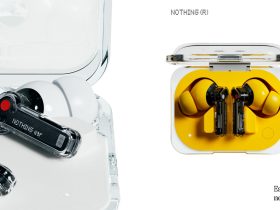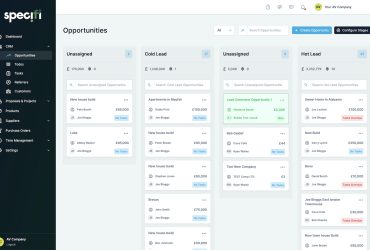The latest candidate in our series of Q&As with influential women in the technology business is Ankita Rachel D’Mello, Principal Product Manager, Wise, a company that provides international money transfers for individuals and businesses around the world.
Name: Ankita Rachel D’Mello
Job Title & Company: Principal Product Manager, Wise
Years in the Industry: 10 Years
The Quote That Most Inspires You: “Kindness is power.”
What drew you to a career in the consumer and/or business technology industry?
I was born in Bangalore, India and a part of my upbringing almost dictated that this was the right industry to go into. I actually started out as an engineer, but over time, I realized that my strengths lay slightly outside that. I was better at problem solving and working with people, so I chose to pursue a career in product instead. I was lucky enough that what I pursued was close enough to what I actually enjoyed. But really, it was all quite a happy accident.
Have you encountered any roadblocks along the way that were related to your gender?
Particularly in my mid 20s, I was very conscious of the fact that I was a petite female in a male dominant industry. It’s arguable as to whether most of that lived in my head or whether it reflected in my reality. Nevertheless, it tugged at my confidence. Over time, I attempted to reframe this. Walking into a room and being underestimated only made it easier for me to shine bigger and brighter than anyone expected.
What unique characteristics or perspective do you feel you bring to your organization as a woman?
Empathy and intuition are often stronger traits in a woman. For years, I believed that it was my weakness. Today, I’ve learned that it’s my superpower. The ability to listen, to empower, and to build an environment where people are excited and motivated is an art. I don’t claim to have mastered it, but I would like to think I’m on the right path.

Technology is historically a male-dominated industry, yet the use of tech is fully embraced by women, and many studies even suggest that females are the primary buyers of tech in the home. What do you feel the technology industry needs to attract more women, particularly into high-level positions?
In early careers, gender ratios are often not much of a problem, even in tech. However, this does drastically change in senior positions, and a very obvious reason is the need for flexibility to be a parent. There are women who can balance work and being a mother magnificently. However, the bar is often very high in senior positions. Women may be more inclined to choose a job that is less stressful and one that affords them flexibility.
Flexibility will be a key component that attracts more women as well as definitive work hours. More often than not, employees work outside of working hours, respond to urgent deadlines on weekends, and more. Companies need to establish better protocols in managing work within work hours in order to ensure a better work life balance for women with children.
If you had to sum up what it is like being a woman in this male-dominated technology industry in just a few words, what would you say?
That I barely notice it anymore.
Are there women in the tech industry who inspire you?
Definitely. I’m lucky enough to work with many at Wise and in my previous roles. To name a few, there’s my first manager Chloe Seddon who taught me a lot of what I know today. There’s also Savannah Sachs, who is one the youngest CEOs I’ve worked with and Melanie Perkins, CEO of Canva. What she’s built is amazing, and I’ve loved following her journey!

What are some of the misconceptions/myths about women working in the technology space that you’d like to dispel?
There’s three that come to mind:
1.You’re surrounded by men and it’s really intimidating. You may be at times, but you’re also surrounded by really smart women. Taking gender out of the equation for a minute means that you are often surrounded by smart people all the time. It’s a great opportunity to better yourself and to learn.
2.You need to be technical. There are so many jobs in the technology industry that do not need you to know how to code. Unless you’re an engineer, this is almost all of them!
3.You get to work on cutting edge projects all the time. Like any job, the tech industry also has elements of the job that you’re not going to like. In every job that I’ve had, I’ve had to master both the good and the bad parts before I start thriving. In summary, you have to learn how to walk before you can run.
What’s one thing you wish was done differently in the industry, and why?
It would be great if students, both in school and college, could have a better understanding of what tech companies do and what they might actually be interested in. Like most college students, I took a chance and found my path by trial and error. It’s a hard one to solve since tech changes at a phenomenal pace. I would love to see more start-ups and scale ups engage young grads and create a culture where they can learn more about themselves before embarking on their career.
Are you optimistic for the future in general and for the industry?
Absolutely. Being born in the early ‘90s, my generation has been one of the luckiest to witness such a significant amount of change in tech. But that’s just the tip of the iceberg. We don’t know what’s yet to come, and that’s the most exciting part about the future.









